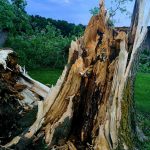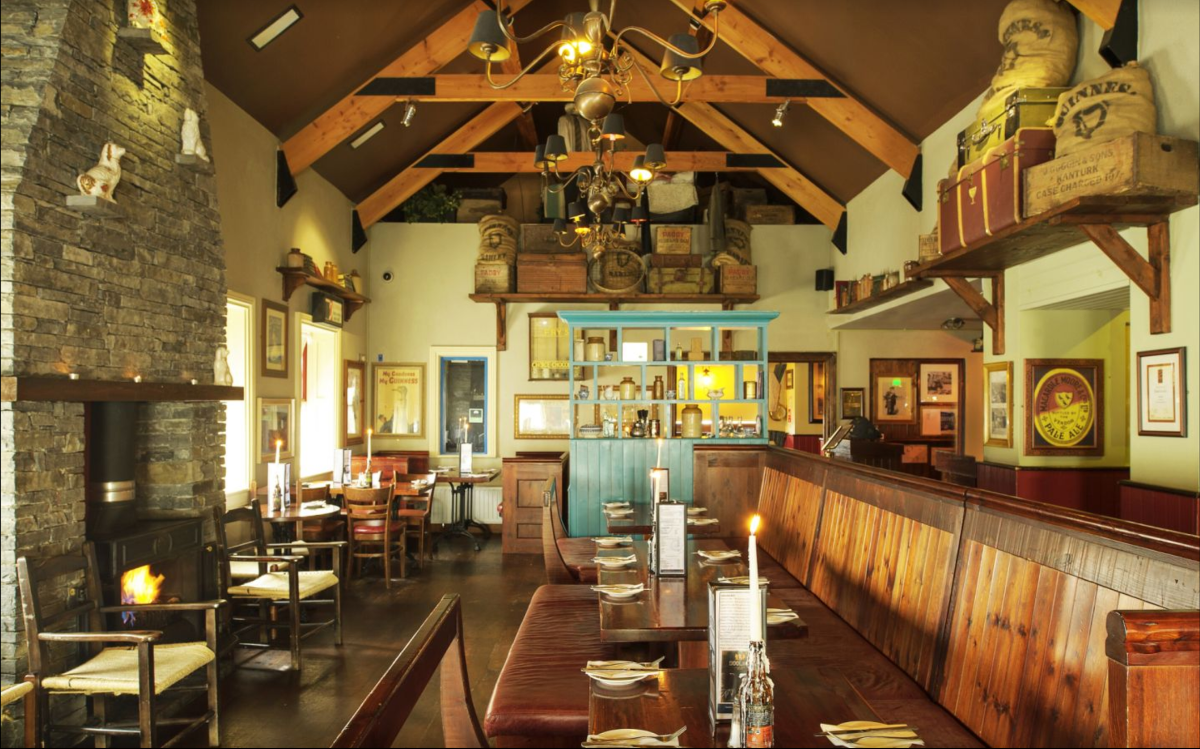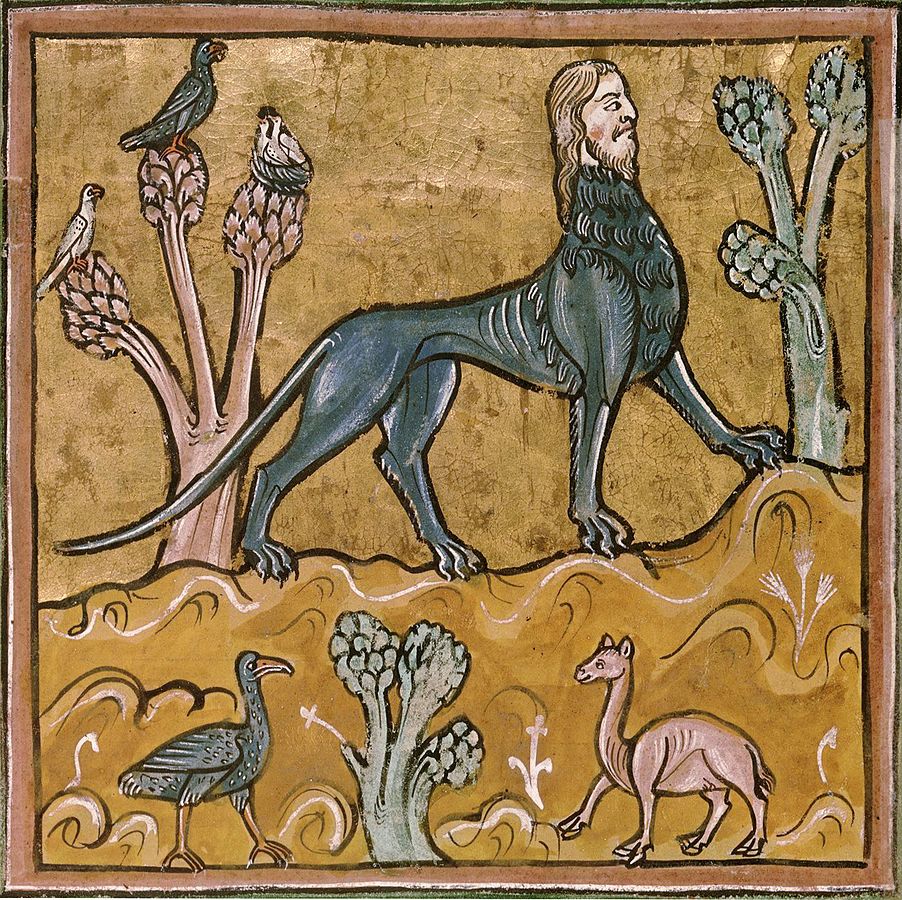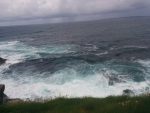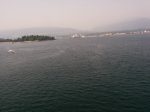Going back to rural America was both pleasant and obnoxious. Everyone has guns these days. There is a culture of paranoia and religion. How these two may go hand in hand I’m not sure. Yet the backdrop to it all has a pleasant rural quality, where it doesn’t take very long to walk down the road and find yourself in a wood, looking at a cow, watching two huge flies mate on your husband’s shirt (that happened), or eyeing the floods among the fields of corn. In the small Indiana town I grew up as a child are historic homes, once used in the Underground Railroad. It is a place I experienced cherished memories, yet, growingly, a place to which I feel a little disconnected, simply for the whole Guns-God-Gold thing, which I have found uncomfortably expresses itself more and more in certain places. So coming back to British Columbia was very nice, even if it was in the wee hours of the morning.
When we were away we did the things I wanted to do. We went to Turkey Run, yet hiked on a different trail than usual–but it was beautiful, winding through a cool canyon. I wore my hiking boots we’d gotten in Powell River, when we hiked a portion of the Sunshine Coast Trail, and got my feet wet jumping in and out of streams that snaked through the gorge. Nearby, Sugar Creek had flooded terribly and it was high and muddy. Back home I knew wildfires were ravishing 100 Mile, Williams Lake, and Cache Creek, among other interior towns. Kamloops, where my husband is from, has become sort of a temporary refuge city for over 40,000 folks who have been evacuated. A storm hit during the early evening when we landed in Indianapolis, and we experienced the worst turbulence we had ever felt. The same storm downed and split open trees in the cemetery where my dad is buried, one hour west–and we went to pay a visit, later walking around the graves, righting flags that had fallen over veterans’ graves or flowers that had flown out of vases.


I read James Bradley’s novel Clade during my vacation and enjoyed it very much. It is what I kind of think of as a ghost story, as we look to the future when these climate change events become more frequent and obvious. For now they are disastrous but still on the tips of our fingers for the most part, still resembling the storms we’ve always known in a world many of us still recognize. I realized that stories are all we have left as we enter the new haunting–the place where spirits flow. Where we feel our losses and extinctions. And then we will just have memories. And newer stories. I’m sure we’ll have new wonderment though, which is cool.
Walking the canyon at Turkey Run, and later wading the lukewarm waves of Lake Michigan at the Indiana Dunes (we could not swim due to a storm and lightning nearby), I was able to revisit my past, going back many years now. I thought, as I trekked the trail, for instance, that I did this decades ago. I remember seeing my baby brother on my dad’s back and now a baby nephew on my brother’s back. Dad is gone and my baby brother is an adult, but those memories are still alive in our hearts, and to me, no matter how much rural America has changed, the memory of Dad, his goodness, is where the countryside and its canyons will stay. We went to the dunes often when I lived in the Chicago area, and as I let my feet sink into the sand last week, standing and gazing out at the gray water and sky, I felt time eclipse. I think it’s like that for all of us now, the older we get, the more changes we’ve seen, the growing awareness that the world is changing more drastically than ever before, yet in many ways horizons are similar to how they were when I was younger.



We also spent time with cousins, sitting outside on Mom’s back patio in the evenings, drinking wine or sipping bourbon in the form of Kentucky Mules or straight, and watching the sky darken over the outskirts of town. Mosquitoes and gnats buzzed around us. The acres of woods across the back of her house grew to be but a dark shape with tree-pointed shadows, just a shade darker than the somewhat light-polluted sky, while stars came out one by one. We heard crickets and the occasional loud songs of dog day cicadas. And we heard silence, a commodity only in the country. There we shared memories, which served as reinforcements to things we weren’t sure we recalled correctly, memories that felt as fuzzy and ephemeral as the night itself, but which gathered force as our collective voices pulled together.
I spent time with one of my best friends I’d met at age 13, shortly before we moved to the Chicago area–and even though I had only known her three months before we moved away from the rural small town, we’ve kept in touch throughout the years, and it really touched me that she even came to my father’s funeral several years ago. “I love ya,” she whispered as we hugged good bye and I honestly didn’t know if I’d see her again ever. I think it’s in these small towns that I really had to look to find the goodness of people beyond Trump’s cliché America, and that goodness does exist liberally, but it may be hidden like faeries. There is love and laughter dancing beneath the new political era.
I’ve also felt this kind of connection with authors and others I’ve met through the eco-fiction site, who, no matter where they live–small town, big town–they surprise me by reaching out and picking up. It’s like what Cory Doctorow talked about in my interview with him–that in disaster it’s surprising how many people turn to their neighbor to lend a hand. After reading Clade I browsed through one of those Hudson News airport stores on the way back (we had a three-hour layover in Seattle) to find a new novel to read, and I saw two books on one of the “featured” shelves. One of them is from an author I had interviewed at dragonfly.eco (Midge Raymond) and another I had noted at the same site by Charlie Jane Anders.

I think life is just full of moments, and despite our impending, and in some cases already super obvious doom from climate change, the only thing left for us to do, besides do what we can personally to be good to ourselves and our planet, is to be good to each other. To lend hands, smiles, stories. Anything that we’ve ever done. I recently mentioned to Clade‘s author James Bradley that the vacation provided me a sort of epiphany–that stories really get us from here to there. That, despite our haunted world, and the way memories and time eclipse us or provide some sort of constant from past to present to future, I realize my life is a revolving door of stories. I am so engrossed in fiction. Fiction is, after all, an expression of reality, a subset of it, like dreams.
I appreciated my time in Indiana for sure. Seeing those I love, becoming tiny under looming starlit nights, smelling fresh hay and corn and fields of other crops like soybeans, listening to the buzz of night insects in the deep wood. Going to get coffee with Mom and then hitting up a farmer’s market. Oh, and my cousin brought shucky beans from Tennessee. All that could be right was. One night we even saw a deer shuffling along the road, and it looked like a ghost because what little light there was hit it oddly. These are places eclipsed from childhood to adulthood–with some of the same people, who I’ve known quite literally my entire life. Everywhere I turned we had stories. Remember when I accidentally threw a firecracker at Uncle Harold? That served him right for the time he growled behind a tree like a bear, when I was five years of age (he made great bear roar sounds) and I sprinted across the night yard into my Mammaw and Pappaw’s screaming the entire way. Remember this, remember that? Same voices, same love, different crickets. Children together, now adults together. Changed and not changed. I fell asleep at night reading too–of a similar multi-generational family getting along throughout the years of vast changes.
When we got home I found a beautiful book at our door, Deena Metzger’s A Rain of Night Birds, which no doubt will be the next story I dive into. But there are so many others as well, and I have lots of writing of my own to get back to. We also watched the first episode of The Game of Thrones‘ 7th season last night, and it was good as usual. While I love the whole epic story, I’m most interested in the Children of the Forest, which I have blogged about before, and hope that they remain mysterious but with more focus at some point in the series. And afterward, as I fell into the soft down of sleep, my mind wrestled between the beautiful rural America of my ghost childhood, and a barrage of reminders of things to do now that life’s routines raise their heads. (And, among these, I have made another doctor’s appointment about my leg for later this week–eager to start running again.)
Oh, and maybe one highlight of rural America was beating my husband once in Mario Kart–nobody else could beat him the whole time. But that’s a different story.
The featured image is of a tree split apart by a recent storm in the small town cemetery my dad is buried at.

